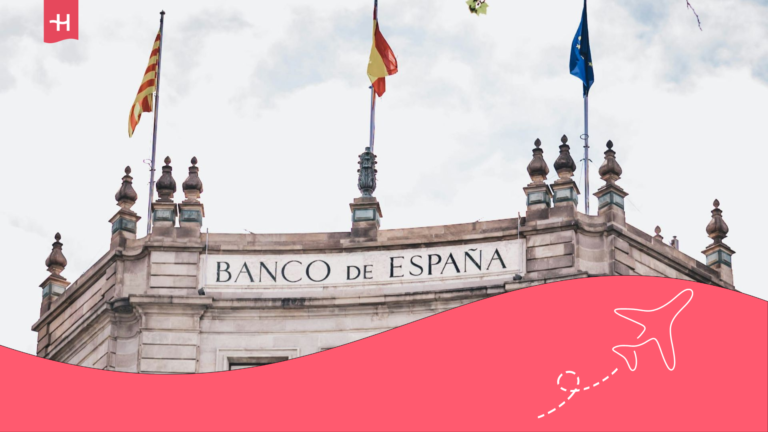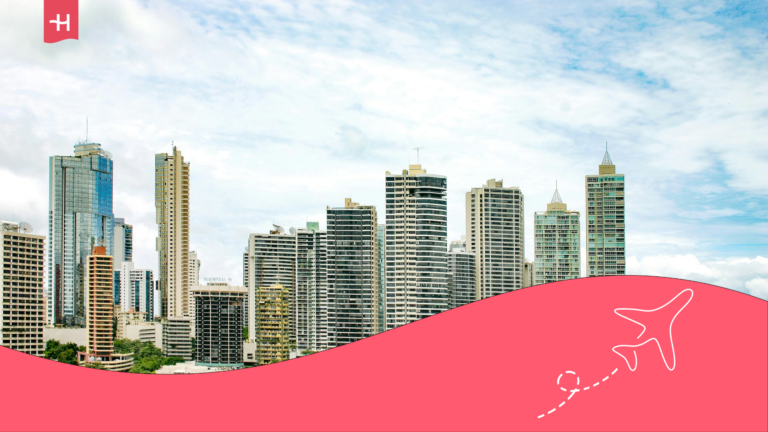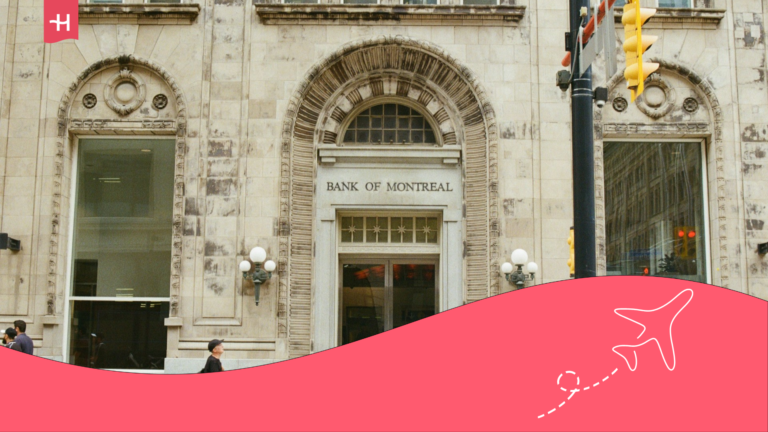Cost of living in Croatia: Food, transport, and more
Cost of living in Croatia: discover accommodation, shopping and transport options to make your stay or move more affordable.
This country in southeast Europe, between Italy and the Balkans, blends Mediterranean with Central European culture, a perfect destination if you enjoy good weather, nature, history and the sea. If you’re curious about cost of living in Croatia, let us tell you they remain lower than most of Europe. Prices have risen since adopting the euro in 2023, yet they stay below Germany, France or Spain, especially outside tourist cities.
In this article, we’ll explore rental costs in Croatia, including apartments, hotels or colivings. You’ll also learn how much a weekly shop, eating in restaurants, using public transport or visiting a hospital may cost. Finally, we’ll review available leisure activities, their prices and the best ways to get reliable internet at your new home.
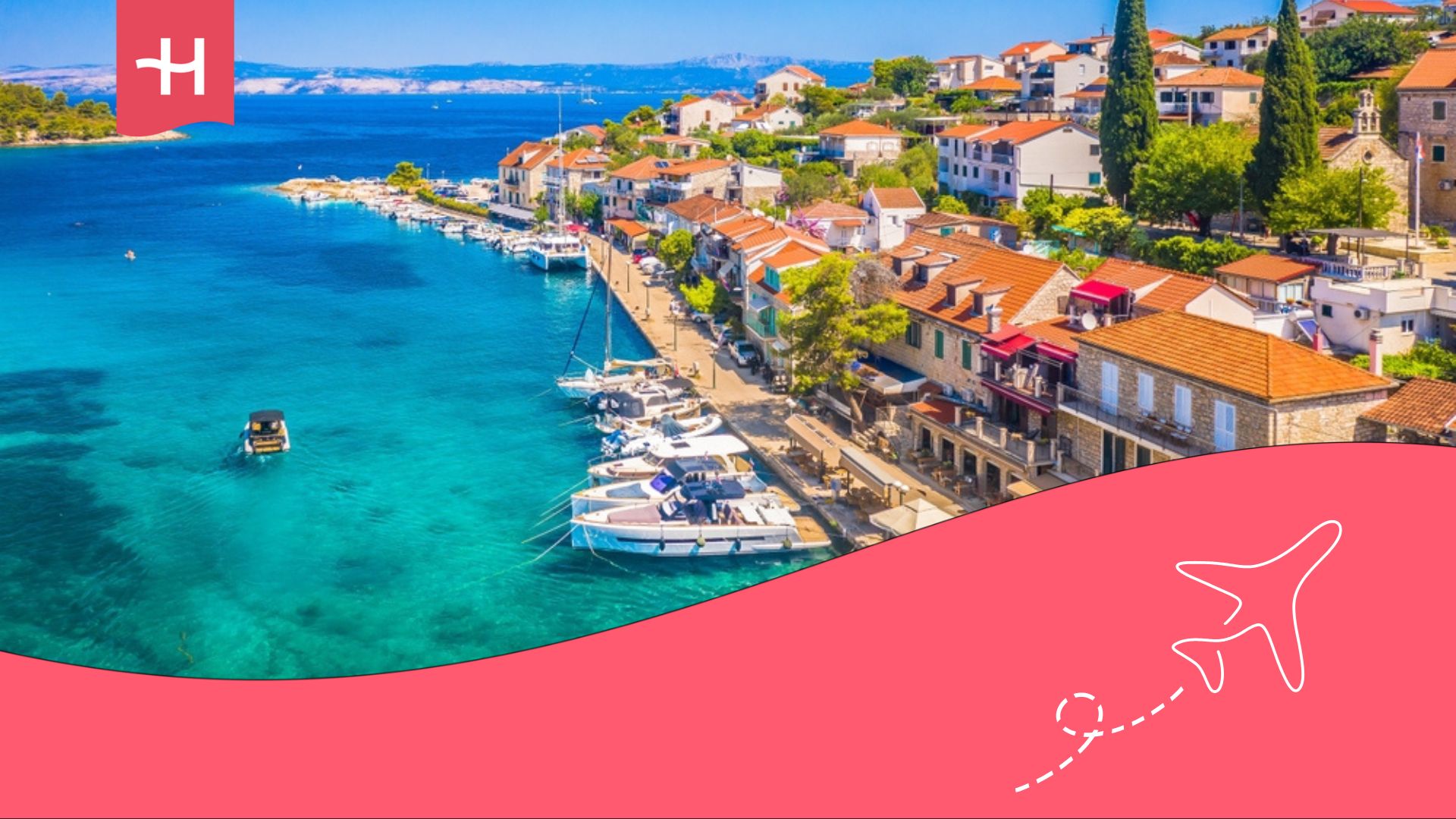
Average cost of staying in Croatia
Looking for somewhere to live in Croatia? You’ve many accommodation choices: long-stay hotels, hostels, furnished apartments, private rooms or colivings. Depending on your travel purpose and lifestyle, some may feel more comfortable. Here’s a sample of options with prices:
- Hotel: Long-stay hotels in Zagreb like Allegra Rooms cost $1,406 (€1,215), double room, or $1,555 (€1,345) at Hotel Ivan Dujmović Dvori in Bol.
- Hostel: Cheaper option if you don’t mind sharing rooms. Bunk beds from $500 (€435) at Rooms Margarita in Split, or $613 (€530) at Hi Hostel in Zagreb.
- Furnished apartment: On Booking, Airbnb or Njuškalo (Croatia’s main portal), one-bedroom homes start from $703 (€625) monthly in Split or Dubrovnik.
- Coliving: On Coliving.com, shared homes with coworking for nomads start from $675 (€585) in Pakostane.
- Rooms: On Erasmusplay, private rooms rent from $656 (€583) monthly in Split.
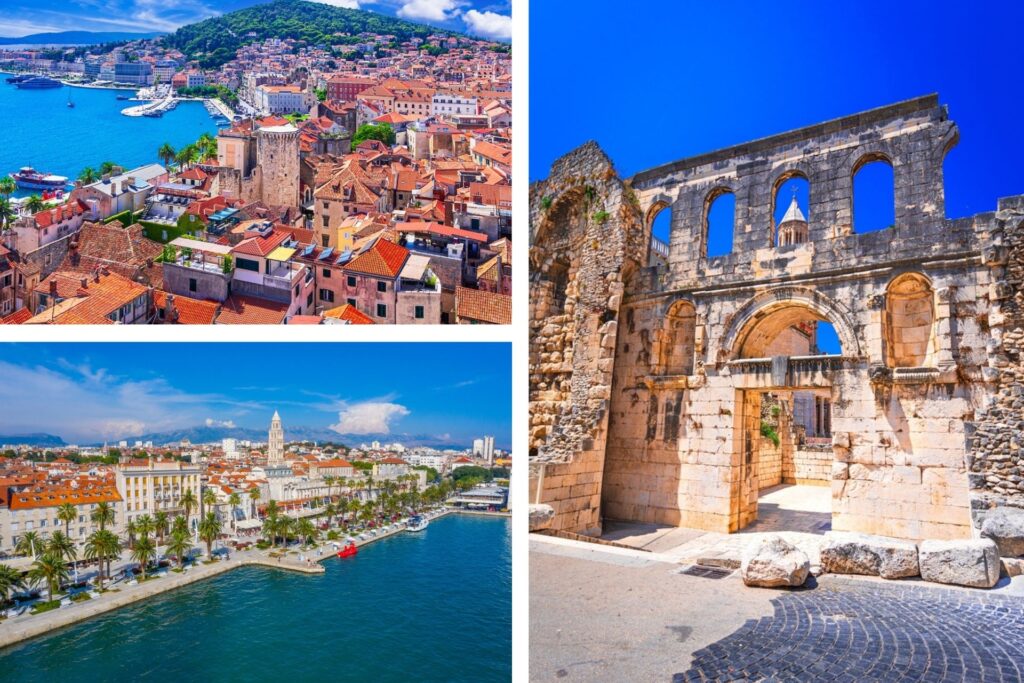
Cost of food
You don’t need a huge budget to eat well in Croatia, because food costs remain accessible, especially if you cook at home. Supermarkets offer good deals and reasonable prices on basics like pasta, eggs or milk. Leading international chains include Lidl, Konzum and Spar. You can fill a basket with these average prices:
- Pasta (1 kg): $2.99 (€2.50)
- Rice (1 kg): $1.60 (€1.40)
- Eggs (dozen): $3.65 (€3.15)
- Milk (1 l): $1.24 (€1.10)
- Beef (1 kg): $12.05 (€10.80)
- Chicken breast (1 kg): $9.45 (€8.50)
- White bread (500 g): $1.60 (€1.40)
- Potatoes (1 kg): $1.10 (€0.95)
- Coffee (cappuccino in café): $2.48 (€2.20)
- Chocolate (standard bar): $3.50 (€3.10)
If cooking isn’t your thing, choose a local restaurant serving traditional Croatian food at moderate prices. You’ll always pay less away from tourist zones, in venues focused on locals. Here’s a sample menu from a traditional tavern in Zagreb:
| Type of Meal | Dish | Price |
|---|---|---|
| Breakfast | Burek with yoghurt and cappuccino | $6.00 (€5.50) |
| Food | Cevapčići or goulash with drink | $13.00 (€11.25) |
| Dinner | Fish plate, local pasta and beer | $13.50 (€12.00) |
Typical menu from a local restaurant in Bali.
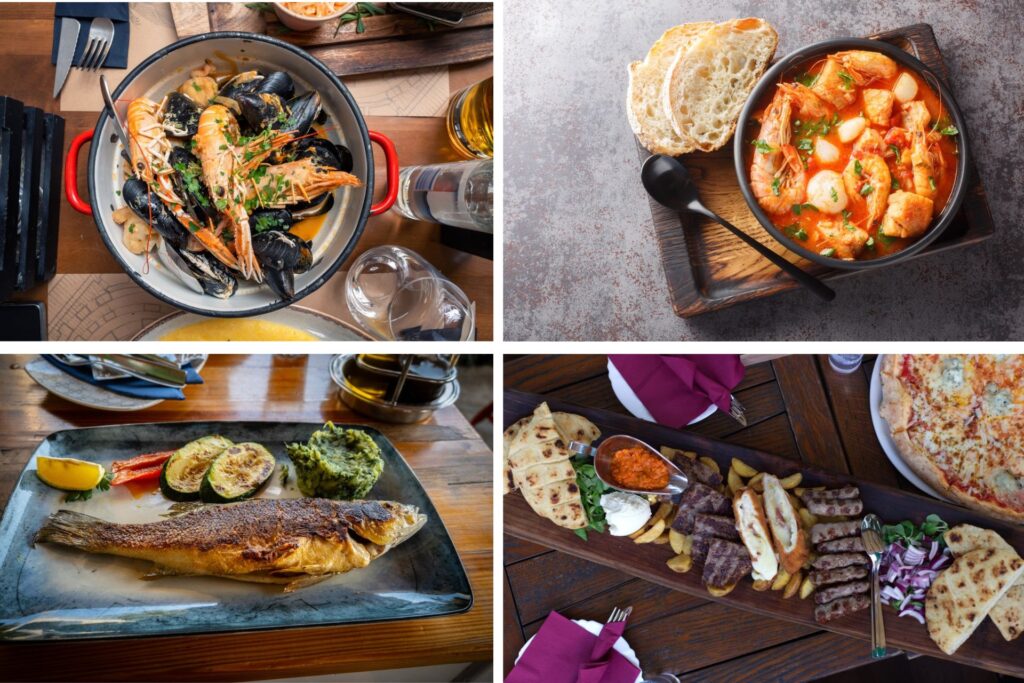
Transport prices in Croatia
Need to get around? Transport costs in Croatia stay affordable compared to Western Europe. If you live here with a digital nomad visa and commute daily to a coworking space or university, you’ll find several transport options. Let’s see the main ones.
How public transport works
Cities like Zagreb, Split and Rijeka have efficient and accessible public transport. You’ll find trams, buses and suburban trains connecting nearby towns. Prices are low, with monthly passes available. Here are typical costs:
- Single ticket: $0.90 (€0.77)
- Monthly pass: $55.00 (€47.50)
Taxis and Uber
Taxis and Uber rides in Croatia aren’t expensive. They’re handy for emergencies or airport transfers, though not ideal for daily commuting. A five-kilometre trip usually costs about $6.50 (€5.60).
Uber only operates in larger cities like Zagreb, Split and Dubrovnik. From the app, you can book rides. A similar five-kilometre trip with Uber usually costs less, around $5.50 (€4.75).
Cycling around Zagreb
For short distances or eco-friendly sightseeing, you can rent bikes in major cities. Zagreb offers 200 kilometres of bike lanes, though some are shared with pedestrians and vehicles. Split, Rijeka and Osijek also provide coastal and central cycle lanes. These are their fares:
- Single ride (up to 30 min): $1.00 (€0.85)
- Daily rental: $5.00 (€4.30)
- Monthly subscription: $20.00 (€17.30)
- Annual subscription: $80.00 (€68.90)
Buy a new vehicle
If you’ll live here long-term or want more autonomy to , buying a car is possible. One of Croatia’s favourite models is the Volkswagen Golf, costing about $26,000 (€22,467) new. Owning a vehicle also means covering these extra costs:
- Basic insurance (third party): from $250 yearly (€215)
- Full coverage insurance: from $600 yearly (€520)
- Petrol (1 litre): $1.65 (€1.40)
- Diesel (1 litre): $1.55 (€1.35)
- Fast public electric charge (1 kWh): $0.35–0.45 (€0.30–0.40)
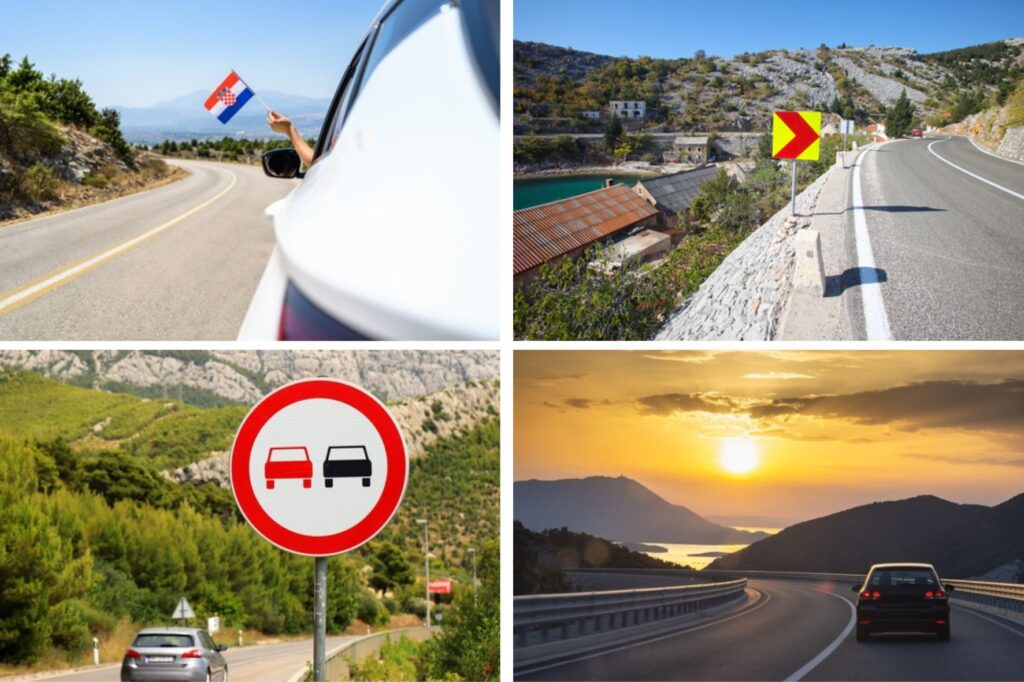
Healthcare costs in Croatia
Wondering about healthcare in Croatia? The country combines universal public care with private options for faster, more comfortable service. With a residence permit, you can access the public system (HZZO) after registering. EU citizens can also request the European Health Card (EHIC) in their home country, which grants temporary free care until they gain residence.
General practitioner visits usually require a 20% copayment, from around $1.55–615 (€1.32–530) depending on the treatment. Many locals take supplementary insurance to cover these copayments, starting from $7.00 (€6.00) monthly.
If you’re not a resident or an EU citizen, your only option is an international health insurance policy. Providers like Cigna or Aetna offer basic plans from $115 (€100) monthly. Without insurance, emergency healthcare in Croatia has these approximate costs:
| Medical services | Approximate cost without insurance |
|---|---|
| General medical consultation | $30–45 (€27–40) |
| Consultation with a specialist | $55–110 (€50–100) |
| Dentist consultation | $30–70 (€26–65) |
| X-ray | $30 (€25) |
| Day of hospitalisation | $225 (€195) |
| Appendicitis surgery: | $2,800 (€2,420) |
| Paracetamol (500 mg): | $1.70 (€1.50) |
| Ibuprofen (400 mg): | $1.70 (€1.50) |
Private healthcare service prices in Croatia.
Internet and call plan prices
Living costs in Croatia regarding digital connectivity are similar to other European countries. In Zagreb, Split or Dubrovnik, major providers like Hrvatski Telekom, A1 and Telemach offer home internet speeds between 100 Mbps and 200 Mbps for about $27–38 (€23–32) monthly, including a basic router. For smartphones, unlimited data plans start from $33 (€28), or 300 GB with T-Mobile, A1, Telemach or Bonbon.
The best way to browse safely abroad without disconnections is using Holafly monthly plans. You can choose flexible subscriptions with 5G coverage across Croatia and in over 170 destinations, without swapping your eSIM.
With the unlimited plan, you can connect multiple devices at once from only $50.50 (€43) monthly, with no extra roaming fees. Holafly also offers a Croatia eSIM for short stays, with unlimited data just for the days you need. How can you activate them? Activation is quick through the app, right after landing.
Important: If you are a frequent traveler and want to stay connected without worrying about expensive roaming or looking for a new SIM at every destination, Holafly’s subscription plans are for you. With a single eSIM, enjoy internet in more than 160 countries for a fixed price and no surprises on your bill. Travel without limits and connect easily and securely! 🚀🌍
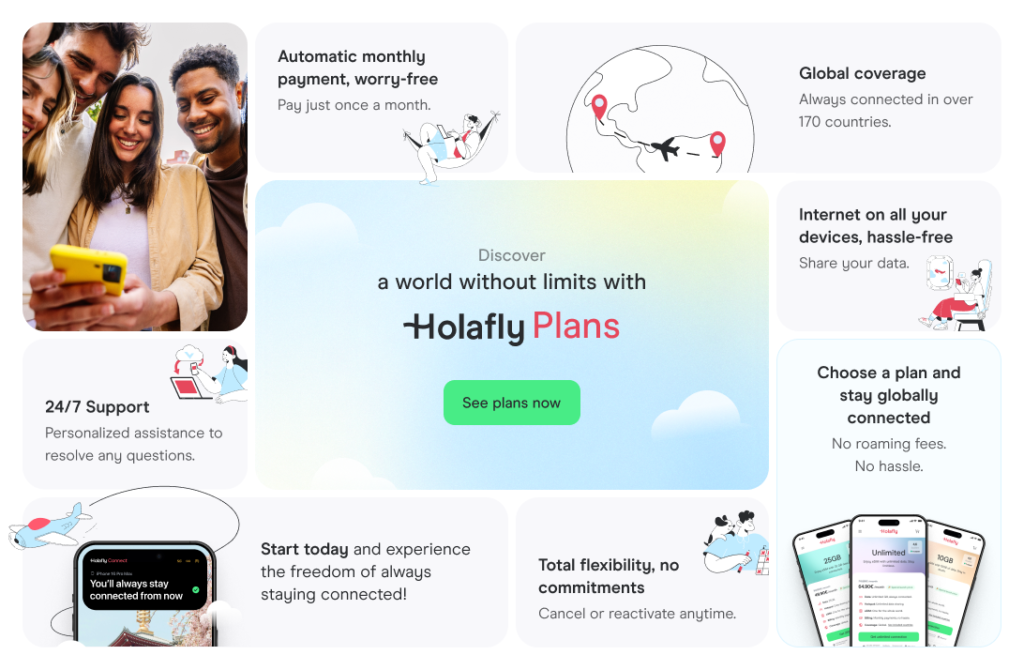
Leisure activity costs in Croatia
Wondering if enjoying yourself in Croatia will break the bank? Actually, leisure costs here match or fall below other European countries. You’ll find activities linked to history, culture, nature and entertainment. Coastal towns often host open-air music festivals with affordable entry for locals. Let’s see what you can do in Croatia:
- Cinema: a ticket costs around $6.50 (€5.60).
- Theatre: enjoy a play at Zagreb’s National Theatre from $20 (€17).
- Zoo: adult entry tickets sell for $6.00 (€5.50).
- Diocletian’s Palace: visit this Roman imperial residence in Split for $13 (€12).
- Dubrovnik Walls: entry to the medieval fortifications costs $35 (€30).
- Plitvice Lakes (National Park): international visitors pay $46 (€40) for entry.
- Museums: between $9–17 (€8–15), depending on the city.
- Netflix: subscription from $8.00 (€6.99) monthly.
To finish this updated guide on Croatia’s living costs, let’s recap. It’s an affordable destination in Europe. Major cities like Zagreb, Split or Dubrovnik are more expensive, especially in peak season. But inland or less touristy towns offer comfortable living at lower prices. Choose your new home in Croatia and enjoy the adventure!
Frequently asked questions about the cost of living in Croatia
Living costs in Croatia are lower than in countries like Germany, France or the Netherlands, especially accommodation and food.
A single person can live comfortably on a monthly budget between $1,000-1,500 (€865–1,295), depending on city and lifestyle. Zagreb and Split are the most expensive.
Rent is a key part of living costs, but outside peak season it’s relatively easy to find affordable housing in private flats, hotels or colivings, from $500 (€430).
Croatia’s healthcare system is good quality. EU citizens and residents access the public system, while other travellers can take private insurance.























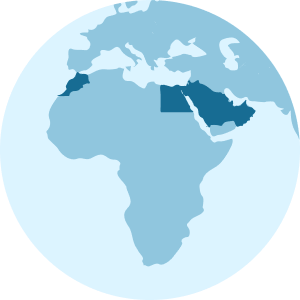



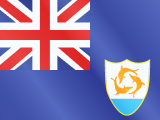

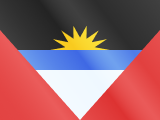





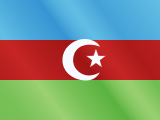


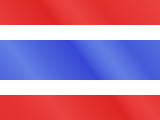

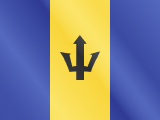





 Pay
Pay  Language
Language  Currency
Currency 


















 No results found
No results found





